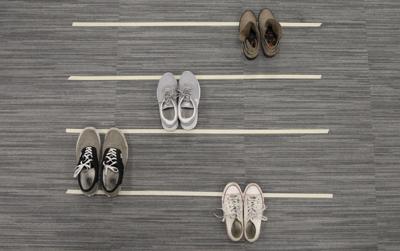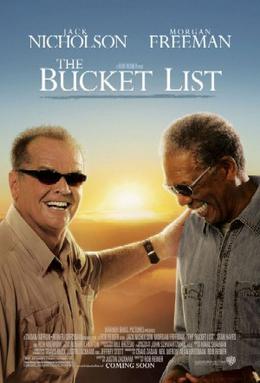A friend recently told me about “The Privilege Walk.”
The typical college classroom version of this activity involves between 10-40 participants. Throughout the privilege walk, the following statements are read by the facilitator and the participants are asked to take a step forward or backward based on their responses.
This activity forces participants to confront the ways in which society privileges some individuals over others. It is designed to get participants to reflect on the different areas in their lives where they have privilege as well as the areas where they don’t.
The following is the complete set of statements from the classroom version of this activity. I’ve included the steps that I would take had I been participating in The Privilege Walk.
Perhaps you can determine how many steps forward or back you would end up, too.
- If your ancestors were forced to come to the USA not by choice, take one step back.
- If your primary ethnic identity is “American,” take one step forward. FORWARD
- If you were ever called names because of your race, class, ethnicity, gender, or sexual orientation, take one step back. BACK
- If there were people who worked for your family as servants, gardeners, nannies, etc. take one step forward.
- If you were ever ashamed or embarrassed of your clothes, house, car, etc. take one step back. BACK
- If one or both of your parents were “white collar” professionals: doctors, lawyers, etc. take one step forward. FORWARD
- If you were raised in an area where there was prostitution, drug activity, etc. take one step back.
- If you ever tried to change your appearance, mannerisms, or behavior to avoid being judged or ridiculed, take one step back. BACK
- If you studied the culture of your ancestors in elementary school, take one step forward. FORWARD
- If you went to school speaking a language other than English, take one step back.
- If there were more than 50 books in your house when you grew up, take one step forward.
- If you ever had to skip a meal because there was not enough money to buy food when you were growing up, take one step back.
- If you were taken to art galleries or plays by your parents, take one step forward.
- If one of your parents was unemployed or laid off, not by choice, take one step back. BACK
- If you have health insurance take one step forward. FORWARD
- If you attended private school, take one step forward.
- If your family ever had to move because they could not afford the rent, take one step back.
- If you were told that you were beautiful, smart and capable by your parents, take one step forward.
- If you were ever discouraged from academics or jobs because of race, class, ethnicity, gender or sexual orientation, take one step back. BACK
- If you were encouraged to attend college by your parents, take one step forward.
- If you have a disability take one step backward.
- If you were raised in a single parent household, take one step back.
- If your family owned the house where you grew up, take one step forward. FORWARD
- If you saw members of your race, ethnic group, gender, or sexual orientation portrayed on television in degrading roles, take one step back.
- If you own a car take one step forward. FORWARD
- If you were ever offered a good job because of your association with a friend or family member, take one step forward.
- If you were ever denied employment because of your race, ethnicity, gender, or sexual orientation, take one step back.
- If you were paid less, treated less fairly because of race, ethnicity, gender, or sexual orientation, take one step back.
- If you were ever accused of cheating or lying because of your race, ethnicity, gender, or sexual orientation, take one step back.
- If you ever inherited money or property, take one step forward.
- If you had to rely primarily on public transportation, take one step back.
- If you attended private school at any point in your life, take one step forward.
- If you were ever stopped or questioned by the police because of your race, ethnicity, gender, or sexual orientation, take one step back.
- If you were ever afraid of violence because of your race, ethnicity, gender or sexual orientation, take one step back.
- If your parents own their own business take one step forward.
- If you were generally able to avoid places that were dangerous, take one step forward.
- If you were ever uncomfortable about a joke related to your race, ethnicity, gender or sexual orientation but felt unsafe to confront the situation, take one step back.
- If you use a TDD Phone system take one step backward.
- If you were ever the victim of violence related to your race, ethnicity, gender or sexual orientation, take one step back.
- Imagine you are in a relationship, if you can get married in the State of ___ take one step forward FORWARD
- If your parents did not grow up in the United States, take one step back.
- If your parents attended college take one step forward.
- If your parents told you that you could be anything you wanted to be, take one step forward.
- If you are able to take a step forward or backward take two steps forward. FORWARD
My result was three steps forward.
I’m not sure how that compares to others who take The Privilege Walk, but I also know this:
I am a white, cisgendered American man with no physical disabilities or mental illness. This makes me one of the most privileged human beings that has ever walked the planet. Add to this that I am reasonably intelligent and was educated in relatively effective, safe school system, and my privilege knows no bounds.
I even managed to avoid war. My great grandfathers fought in World War I. My grandfathers fought in World War II. My father was drafted and fought in Vietnam. I’m a member of the first generation in a long time not required to risk my life in a foreign land on behalf of my country.
The only thing missing from my remarkable privilege was money. I grew up in a broken home with little money, and I was forced to leave home after graduating high school, but even that is nothing in comparison to the challenges faced by people who not male, white, or cisgendered.
Regardless of the many challenges that I have faced, I hit the lottery in terms of privilege.
When asked how I managed to overcome the admittedly daunting obstacles of my life, I’m happy to point to my hard work, intellectual curiosity, an intense desire to prove myself in the face of those who doubted and dismissed me, and a conscious, purposeful decision to avoid all illegal and potentially addictive drugs during high school and beyond. I’m thrilled to point to those who lifted me up in times of need and mentored me when others chose to abandon me.
Each of these factors were critical to my success.
But all of that would’ve been meaningless had I also been facing the overwhelming challenges of institutional racism or sexism, the discrimination and violence routinely suffered by members of the LGBTQ community, or the added challenges of a physical disability or mental illness.
Imagine if I had been an immigrant facing those same challenges. Imagine what might’ve happened to me had I been educated in a failing school system. How might my life have been different had I been drafted into the military and forced to kill human beings in another country.
I’m not saying I wouldn’t have found a way to succeed, but my slope to success would’ve been far steeper, and the trail would’ve been far longer.
Maybe too steep and too far for even me.
I was supposed to succeed. I was given nearly everything I needed to succeed. My success should be viewed as expected and fairly ordinary. I’m a white, cisgendered American man. The carpet was practically rolled out for me.
I know this is hard for some people to hear. It’s far more appealing to think of yourself as someone who has achieved a level of success based solely upon effort, talent, and gumption. It’s convenient to dismiss your privilege as irrelevant to your rise. It’s easy to ignore that college degree that your parents paid for or the car that they bought you or the private school you attended or the roof available to you whenever you stumbled.
You can still feel good about your success. Proud of your achievements. Happy with yourself for all that you have accomplished. I certainly do. I tell myself that story every day as a means of moving forward and trying even harder. But if you fail to factor in the privilege that you’ve enjoyed if you’re someone like me, you’re lying to yourself and dishonoring the struggle of others.
You’re no better than those cowards who want to pull books about Ruby Bridges or Rosa Parks or Martin Luther King from school libraries because those stories might make their white, privileged children feel bad that black people were owned like livestock by white people less than two lifetimes ago.
Privilege isn’t something convenient to acknowledge, but it’s real. When you refuse to acknowledge it, you simply expose your small, fragile ego, your unwillingness to help others less fortunate than yourself, and your bigotry toward those whose struggles are far greater than you could even imagine.
Three steps forward in The Privilege Walk doesn’t feel like nearly enough steps forward for someone like me.









